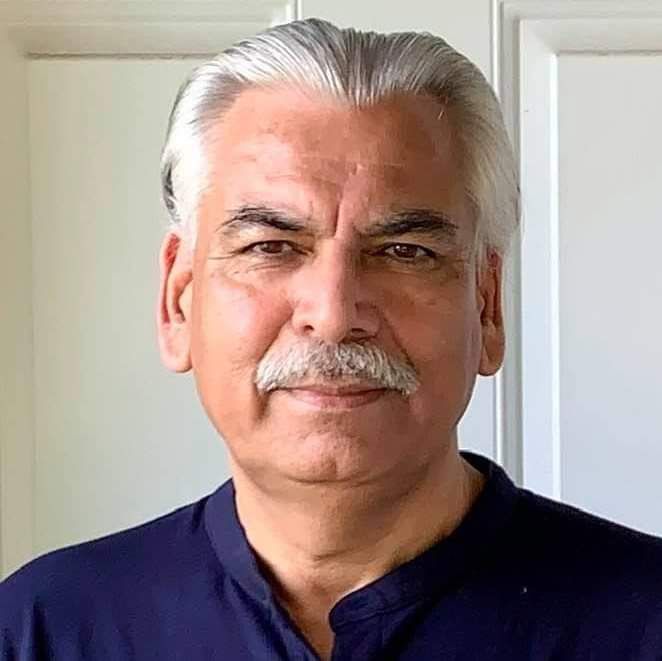By Barrister Usman Ali, Ph.D.
This year marks Pakistan’s 78th Independence Day. Over this period, we have certainly achieved many successes of which we can rightly be proud. But we must also acknowledge the harsh reality that serious problems still confront us, keeping the entire nation deeply concerned. Every Pakistani hopes that we all recognize our responsibilities, admit our mistakes, learn from them, and steer the national journey in the right direction.
On Independence Day, raising flags, singing anthems, lighting fireworks, and taking selfies are symbols of our joy. But alongside this celebration, we must also ask ourselves: the dream for which millions sacrificed their lives , where does it stand today?
Seventy-eight years ago, the Muslims of the subcontinent demanded a separate state. Quaid-e-Azam made it clear that Pakistan was not merely a piece of land but an ideology , a system where there is justice, equality, self-respect, and the right of every citizen to live with dignity.
We have achieved much: we became a nuclear power, built one of the finest armies in the world, and made significant progress in medicine, education, sports, and social welfare. Our youth have proven their intelligence at international forums, with countless examples and names recorded in golden letters in our history. All of this is the fragrance of this very soil.
But have these achievements delivered justice, security, and a dignified life to the ordinary Pakistani? Our politics has become a game of personal vendettas and interests, public trust in the judiciary is shaky, the media has turned from journalism into a machine of division and rumors, and the ordinary citizen struggles with electricity bills, queues for flour, and the rising cost of medicines.
Even today, millions of children are deprived of education, thousands die without treatment, and tens of millions live below the poverty line. Is this the Pakistan that was dreamed of?
For decades, every institution and center of power has blamed others for the country’s decline while conveniently forgetting its own role. Politicians condemn military interference but repeatedly seek the generals’ help to topple rivals. The judiciary complains of pressure but has often legitimized unconstitutional governments. The bureaucracy laments political meddling but serves the powerful. The media, religious institutions, and other pillars of society protest when it suits them but bow before power when it benefits them. The military, too, has overstepped its constitutional limits, playing political games and weakening democratic values.
If Pakistan is to survive and progress, every power center must abandon the politics of blame and choose the path of self-reform. True independence will come only when all players put honesty, adherence to the Constitution, and public service above everything else. This is the time for change , not for someone else, but for all of us.
Politicians, in particular, bear the greatest responsibility. Protests, accusations, and abusive politics will achieve nothing. What’s needed is for all to sit together, engage in sincere dialogue, admit their mistakes, and, in the future, trust the power of the people instead of becoming puppets of the generals. Like in mature democracies, the government and opposition must play their constitutional roles and focus on peace, development, and prosperity rather than opposition for opposition’s sake.
When politicians set their direction right, much will fix itself, the media will spread awareness instead of sensationalism, the judiciary will act impartially, generals will stay within their limits, and public trust will be restored. The nation’s welfare lies only in mutual respect and every institution working within its constitutional boundaries.
How long will we keep repeating the mistakes of the past? How long will the Constitution and institutions be trampled in the games of power? How long will public trust keep breaking? It is time to pause, reflect, and make a fresh start. Yes , we need a new social contract, one that leaves the past behind and focuses solely on Pakistan’s future.
We must decide that politics will move away from hatred and revenge toward public service and solving problems. The judiciary must be truly independent and impartial so justice is swift and equal for all. The media must act responsibly , to enlighten, not inflame. The state must also ensure that those who spread lies, rumors, and material that defames national institutions face strict and effective action.
Ending corruption is not just a slogan , it requires consistent, across-the-board, and ruthless accountability that reaches every powerful person, not just opponents or the weak. Education, healthcare, jobs, and security must be guaranteed for every Pakistani, regardless of region, class, or language. Local governments must be strengthened and empowered so decisions are made at the community level and problems are solved from the ground up. Urdu must not remain only a symbolic national language but be implemented practically so the link between the state and the citizen is strengthened.
We must also accept that the power struggle between institutions has weakened us. Now we must build an environment where every institution works within its constitutional boundaries and all put the national interest above personal interest.
This country is rich and full of potential, hard work, and passion , it only needs the light of unity, sacrifice, and sincerity of purpose. If today we decide to leave behind our egos, prejudices, and personal interests, bury the bitterness of the past, and bring improvement through action, not words, then tomorrow’s Pakistan will be the one promised , a welfare-oriented, strong, and dignified state.
Otherwise, we will keep returning to the same crossroads where every slogan is new, but the road is old, and every change is only a change of faces, not the system.
Let us, on August 14 , not just celebrate, but renew our commitment.
Enough talk… it’s time to move forward.
78 years , no more excuses.

